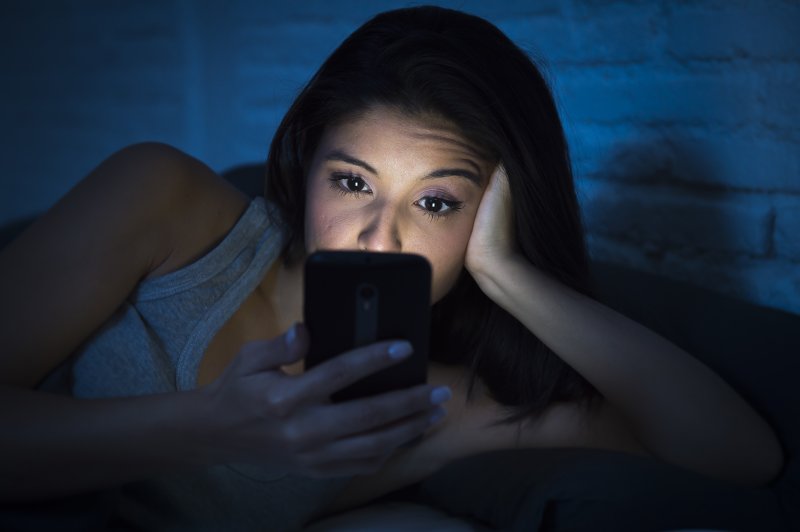
We’ve all been guilty of using our devices just a little bit too often. But did you know that by using your phone, tablet, computer or even your television right before you go to bed can negatively affect the quality of your sleep? According to sleep science, we can prove this to be the case. To learn the details on “blue light” and how this can affect you and your family’s sleep schedule, you’ll want to keep reading.
What is Blue Light?
Blue light is a specific wavelength of light that’s typically emitted from electronic devices. It’s meant to make what’s visible on your device easy to view, but this function comes at a price. When viewed at night for long periods of time, it can confuse the brain into thinking that it’s still daytime when in reality your body should be relaxing and getting ready for bed. While there are apps for certain devices that work to mitigate this blue light, it’s not the only reason you should ditch your device before catching some shut-eye.
Devices Affect Melatonin Levels
First, blue light can actually suppress melatonin levels in your body. Melatonin is a hormone that’s specifically intended to control your sleep and wake cycle, also known as your circadian rhythm. The less melatonin you have, the more difficult it becomes for you to get to sleep. Most Americans are willing to admit they use their device as they’re getting ready for bed, but if you find yourself tossing and turning on a regular basis, it may be time to go technology-free.
The best way to do this is to discontinue use of a device 30 minutes prior to going to sleep. You can also remove devices from your bedroom entirely to promote a sleep-friendly environment.
They Promote Brain Activity
If you’re a particularly busy individual, you may find it difficult to avoid reading work emails or an article that’s been sitting on your browser for a while now. The problem with these tasks is that they stimulate brain activity, which is not something you want when you intend on sleeping in the near future. Instead, consider reading a book or listening to music to help you unwind.
They’re Constantly Chiming
You don’t need to use your cell phone for it to disrupt your sleep. While blue light is considerably more harmful, having a phone chime or make sounds as you try to get to sleep can be disruptive enough to keep you awake or even wake you up in the middle of the night.
If you rely on your phone as an alarm, purchase a dedicated alarm clock instead. If you have children, make sure that they aren’t spending time in bed using their phone. Getting enough sleep is important regardless of your age, but getting enough sleep at a young age is especially important.
Looking for more tips on getting a better night’s sleep? Are you struggling to get enough sleep despite taking on better habits? Schedule an appointment with a sleep dentist today!
About the Author
Dr. Mitch Conditt earned his DDS degree from the Baylor College of Dentistry. As part of his continuing education, he’s been mentored by world renowned experts in the field of sleep-disordered breathing. This makes him fully equipped to treat a wide array of sleep disorders. To learn more about his practice, you can contact him through his website.
